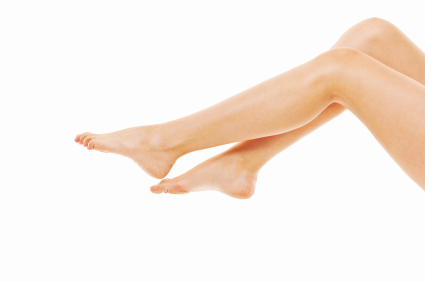 Cracked heels are a common foot condition that many people experience. Aside from dry, rough skin, cracked heels can also bring about signs of redness, itching, or inflammation. To combat cracked heels, consider some of the following tips: using mild soaps that are not overly drying, wearing proper-fitting shoes that cover and protect the heels, soaking the feet in warm water to soften the heel and prevent the heels from thickening, exfoliating the heels with a scrub to remove excessive dry and dead skin, and moisturizing the feet with a thick lotion or cream that will penetrate the skin.
Cracked heels are a common foot condition that many people experience. Aside from dry, rough skin, cracked heels can also bring about signs of redness, itching, or inflammation. To combat cracked heels, consider some of the following tips: using mild soaps that are not overly drying, wearing proper-fitting shoes that cover and protect the heels, soaking the feet in warm water to soften the heel and prevent the heels from thickening, exfoliating the heels with a scrub to remove excessive dry and dead skin, and moisturizing the feet with a thick lotion or cream that will penetrate the skin.
Cracked heels are unsightly and can cause further damage to your shoes and feet. If you have any concerns, consult with Dr. Joshua David Scoll of Pennsylvania. Our doctor will assist you with all of your foot and ankle needs.
Cracked Heels
Cracked heels are unappealing, and make it harder for you walk around in sandals. Not only may they look bad, but they can also tear stockings, socks, and wear out your shoes. There are several methods to help restore a cracked heel and prevent further damage.
How do you get them?
Dry skin is the number one culprit in creating cracked heels. Many athletes, walkers, joggers, and even swimmers suffer from cracked heels. Age and skin oil production play a role to getting cracked heels as well.
Promote Healing
Over the counter medicines can help, especially for those that need instant relief, or who suffer from chronic dry feet.
Wear Socks – wearing socks with medicated creams, helps lock in moisture so it can stay on longer.
Moisturizers – applying it both day and night will help alleviate dryness which causes cracking.
Pumice Stones – these remove dead skin, and then you can massage cream onto your foot. This way the cream will be absorbed. The skin needs to be exfoliated; therefore the outer layer dead skin needs removal.
Change in Diet
Eating healthy, with a well-balanced diet, will give the skin a fresh and radiant look. Your body responds to what kinds of food you ingest. Omega-3 fatty acids and zinc supplements will also help with skin tissue.
Most importantly seek a health professional for foot care if something is wrong or doesn’t seem to be working. A podiatrist will help you with any questions or information needed.
If you have any questions, please contact our offices located in Philadelphia and Bensalem, PA. We offer the newest diagnostic and treatment technologies for all your foot care needs.
